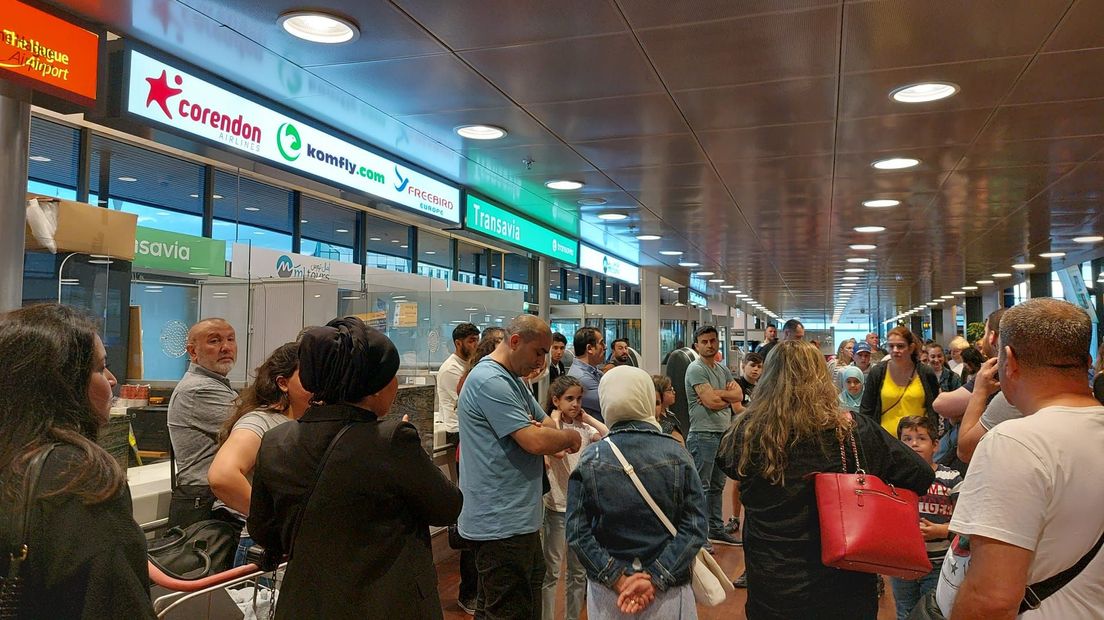Clothing sensors that measure vital signs; applications that identify sugar levels when taking pictures of food; robots that can help seniors take their medication; and even augmented reality glasses to make teleconsultations. These were some of the projects that Altice Labs presented at the event that marked the six years of this scientific center in Aveiro, which, according to Ana Figueiredo (executive president of Altice Portugal), is indeed the largest center for «research and development» and the «headquarters of technological innovation» in the country.
Government ‘always available’ to drive innovation
The event had what was the first public intervention by Alexandre Fonseca since he assumed the position of global co-CEO of the company; the official “raised” the city to a “beacon for other municipalities”, a distinction that is justified by the fact that the ‘Venice of Portugal’ is a “neuralgic center of innovation at a global level”. Alexandre Fonseca highlighted the importance of several projects and technologies developed at Altice Labs and warned that it is necessary to continue working to “attract foreign investment” to the country.
Elvira Fortunato, Minister of Science, Technology and Higher Education, was also present and highlighted the Government’s commitment to «promote» this type of projects and to «collaborate» with Altice Labs: «We are always available to reinforce the commitment to Science and in innovation”.
Offline and analogue «does not respond to needs»
‘Science’ and ‘innovation’ were two of the words that were heard most during the presentations. This year, with the theme of digital health setting the pace of the event, several partners from Altice Labs were present who showed some of the innovations that are already being used in hospitals and other health services.
According to Alcino Lavrador, director general of this center, the «relevance for technology and applications in the health ecosystem» has grown in recent years, due to the various challenges that have been posed to the sector: the «increase in average life expectancy , the aging of the population and the prevalence of chronic diseases» were some of the reasons given. This is also a time when the «offline and analogue world does not respond to the needs and expectations» of patients, doctors and nurses.
Thus, it is not difficult to foresee that many of the solutions presented on the sixth anniversary of Altice Labs aim to bring caregivers and patients together digitally and remotely.
Robots, sensors and ultrasounds with Hololens
Remote patient care is undoubtedly one of the current trends in medicine. In Aveiro, it was possible to discover SmartAL, a complete assisted living platform whose main objective is to «collect data through wireless medical devices, by sensing spaces or even on people, through wearables». One of the highlights of this project is a small robot that «acts as a companion» to support, for example, an elderly person «in taking medication and providing small objects».
Another of SmartAL’s valences are clothes made with smart fabrics and sensors, which collect information about patients and send it to a centralized platform, which ends up having the entire health profile of a person, accessible to health professionals. Here, Altice Labs partners are TMG and Cenimat-i3N (Materials Research Center of Universidade Nova de Lisboa).
“By creating a digital health ecosystem, telemonitoring will relieve pressure on hospitals and prevention will promote the well-being of citizens, making them live with more and better health and promoting fairer access to health care across the board. the population», underlined Alcino Lavrador, who acted as guide on a tour of all the projects.
Other highlights were Mediceus, a system that aims to be, by 2023, the «most advanced system in the world in the protection of health data», and the «augmented telemedicine» resource Medigraf (used by Centro Hospitalar do Baixo Vouga), that we saw in action in what could be a teleconsultation with ultrasound, with the use of Hololens mixed reality glasses, under 5G network.
Awards to distinguish the best
In addition to serving as a technology showcase, the sixth anniversary of Altice Labs also had two parallel moments. The first was the awarding of the first Nova-Altice Research Prize, a partnership between the company and the university with the same name, to Rodrigo Martins, (chair professor and president of the European Academy of Sciences), who distinguished himself for research in the area of materials.
The second was the announcement of the sixth edition of the Altice International Innovation Award (AIIA) which, for the first time, will be open to «any country in the European Union». With three categories (‘Includes’, ‘Startup’ and ‘Academia’), the total value of the prize money reaches 95 thousand euros. Applications are open until 23 September.
failed operation
In the program for the sixth anniversary of Altice Labs, there was a moment in which the experience of remotely assisted surgery, via 5G, that had already taken place at the Champalimaud Foundation in May would be repeated. On that occasion, and in Lisbon, Pedro Gouveia wore Microsoft’s Hololens virtual/augmented reality glasses; in the Spanish capital, Rogelio Andrés-Luna provided assistance with a laptop connected to the national surgeon’s AR device. This time, a reversal of roles was foreseen, with Pedro Gouveia watching his Spanish counterpart in real time, in a breast cancer operation. However, the moment did not happen, due to a «technical failure of the platform» that allowed the connection between the two surgeons. Alcino Lavrador even promised that the connection would be made later, but the event ended up advancing to the interventions of Alexandre Fonseca and Elvira Fortunato, without any attempt to make the connection via 5G between Portugal and Spain – a failed operation.
–


